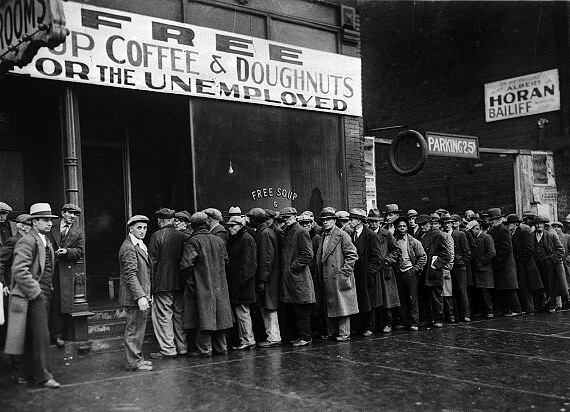As COVID-19 leaves millions homebound or unemployed, Americans have not experienced a dramatic shock to our culture this acute since the attack on Pearl Harbor. Like all past hardships, the pandemic should broaden our perspectives for a better future.
Post-COVID America will be a better America. The wake of the crisis will leave a permanent mark on our habits and outlooks just as the Great Depression did when it created the most frugal generation.
Just as our Greatest Generation was painfully pruned through hardship, Americans today should make some changes to their daily lives that will result in a better, safer future.
Post-COVID Americans should wash their hands properly and often.
Washing hands seems the sternest call to action on all fronts, making apathetic or otherwise unaware people sensitive to where their hands have been and how they might affect others.
Now hyper-aware of the dangers of improper handwashing, we should all take this as a lesson to actively cease spreading any and all pathogens with our hands, not just that of the coronavirus. Perhaps if we had adopted this preschool-level habit long ago, we would have thousands fewer flu fatalities each year.
Post-COVID businesses should have better sick leave policies, or at least employees should consider giving up a few hours of income to spare the spread of whatever pathogen got them down.
Especially in lesser-paying hourly jobs, workers often feel they have a duty to push through their sickness and continue working. This sentiment should take a proper halt. Coronavirus translates this characteristic of an American hard worker to the characteristic of an accidental saboteur.
Post-COVID businesses should accommodate the employee that, though they are willing to push through sickness, stays home out of concern for others.
Regretfully, pre-COVID-19 America failed this respectable employee.
We have yet to implement any national standards for staying home when sick. As thoroughly evidenced by the Kaiser Family Foundation, a non-profit focusing on U.S. health, most of those without some form of sick leave are the lower paying jobs which may need it the most.
Post-COVID America should better appreciate its “essential” workers.
(See Virginia’s Executive Order Number 53: Directive five for list of Virginia essential businesses.)
Instead of staying home, essential workers often endanger themselves to provide a public service and family income.
These essential workers, commonly with lesser paying jobs and with sparsely available sick leave, deserve more feasible recognition as a critical part of our economic fiber.
Post-COVID America should be one that makes itself more self-sustainable.
Quick sell-outs of cleaning supplies, foods and toilet paper suggested that people panic at the slight chance they may not have access to a supermarket.
Modern conveniences created dependency. Our system allowed misinformed, frantic Facebook enforcers to leave millions without essential supplies.
Post-COVID America should embrace more efficient avenues for conducting business.
Many grocery locations expanded or added grocery pickup. Businesses created makeshift drive-thrus, and restaurants created curbside service to stay open.
These multiple methods will increase accessibility and may even increase efficiency.
Post-COVID-19 America should push to make more services digitally accessible.
Throughout this health crisis, doctors have moved noncritical visits to a phone or video call. More people, including most of Liberty’s teaching staff, must find ways to work from home.
Without becoming dependent on digital options, increasing digital access in many businesses will improve efficiency and resilience to economic fluctuations.
Post-COVID-19 America should be one that is more open to ideas and perspectives that are not their own.
Extreme events expose flaws. From legal systems to individual philosophies, the coronavirus response tests our outlooks.
Through this episode we have seen the heroism of those who put themselves at risk to serve others. Nurses overwhelm themselves with contagious, critical patients. Postal workers cautiously clock into potentially infected workplaces. Grocery stockers work extra to properly sanitize areas for customers. Cashiers sacrifice 6-foot social distancing recommendations.
And scores of others have helped the nation move through the mire of the moment.
Americans tend to form opinions on things that do not affect us. Now that every person has felt the inadequacies of our system, we should think more realistically and respectfully about our views.
For example, people recklessly disobeying stay-at-home orders and social distancing challenge the idea that the government should not be able to restrict freedoms. In contrast, an inefficient government response challenges the idea that government is solely responsible for keeping safety and peace.
Perhaps both are wrong. Where’s the balance?
Coronavirus has left us no choice but to reinvent our culture. Those who persevere, reimagine, care for others, practice safety and wash their hands will pull us all out of this. Everyone — even the toilet paper hoarders — has a role to play in shaping our new America .
Clayton Dykstra is an Opinion Writer. Follow him on Twitter @dykstracd

Cicilia Bangun
April 15, 2020
Everybody has to learn from this Covid-19 lessons. Post Covid 19 will change manythings, our future, our daily habits, working activities even the way we communicate with others. But the most important know is fully supporting all the health workers as the risk their lives to help others. At least we follow protocol of covid-19 by washing our hands properly, stay at home and keep physical distancing.
Clayton Dykstra
April 27, 2020
Thanks for commenting! You are right that we should be supporting our health workers! And the best way to do that is, as you said, washing our hands properly and often and social distancing. If this continues, do you think we could see the end of the American handshake?